Abstract
The conditions and requirements for an in vitro protein synthesizing system from the moss Tortula ruralis are outlined. Using this system the effects of desiccation, achieved quickly or slowly, were studied. Slowly dried moss retained fewer polyribosomes on desiccation but more active ribosomes than rapidly dried moss. Even in the completely desiccated moss the polyribosomes and/or free ribosomes present have retained their synthetic capacities. On rehydration, the slowly dried moss resumed protein synthesis more quickly than moss previously desiccated rapidly. Moss ribosomes are cycloheximide sensitive and chloramphenicol insensitive and thus the major protein synthesis occurs within the cytoplasm on rehydration. Extracted polyribosomes per se can withstand desiccation to a significant extent, suggesting that protection by the cytoplasm might not be necessary. The aquatic moss Hygrohypnum luridum can retain polyribosomal and ribosomal activity during desiccation, but this decreases greatly on rehydration.
Full text
PDF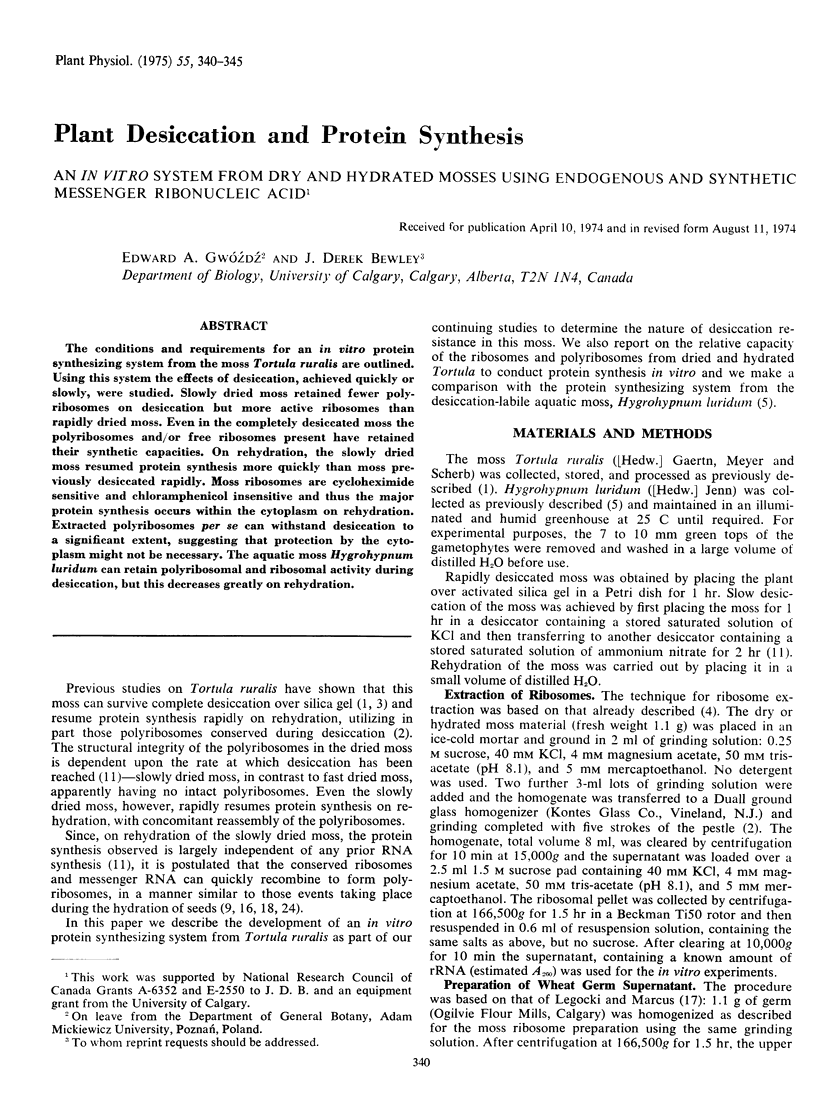
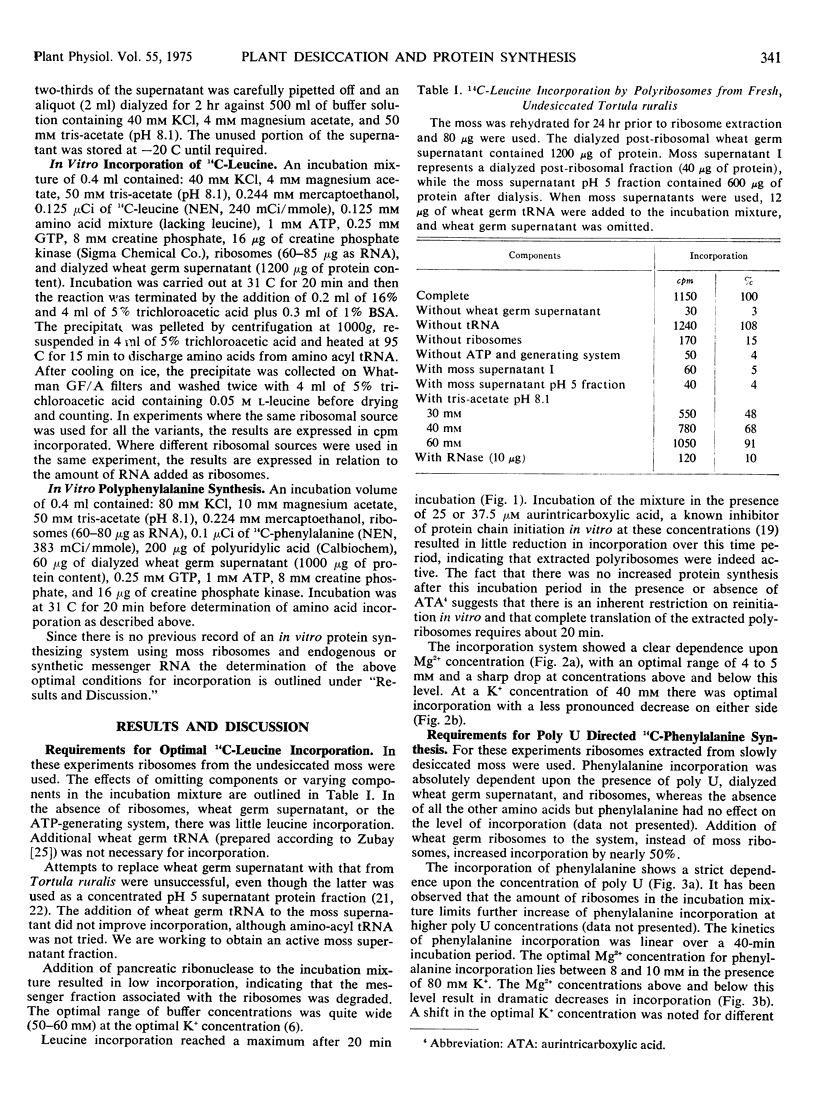
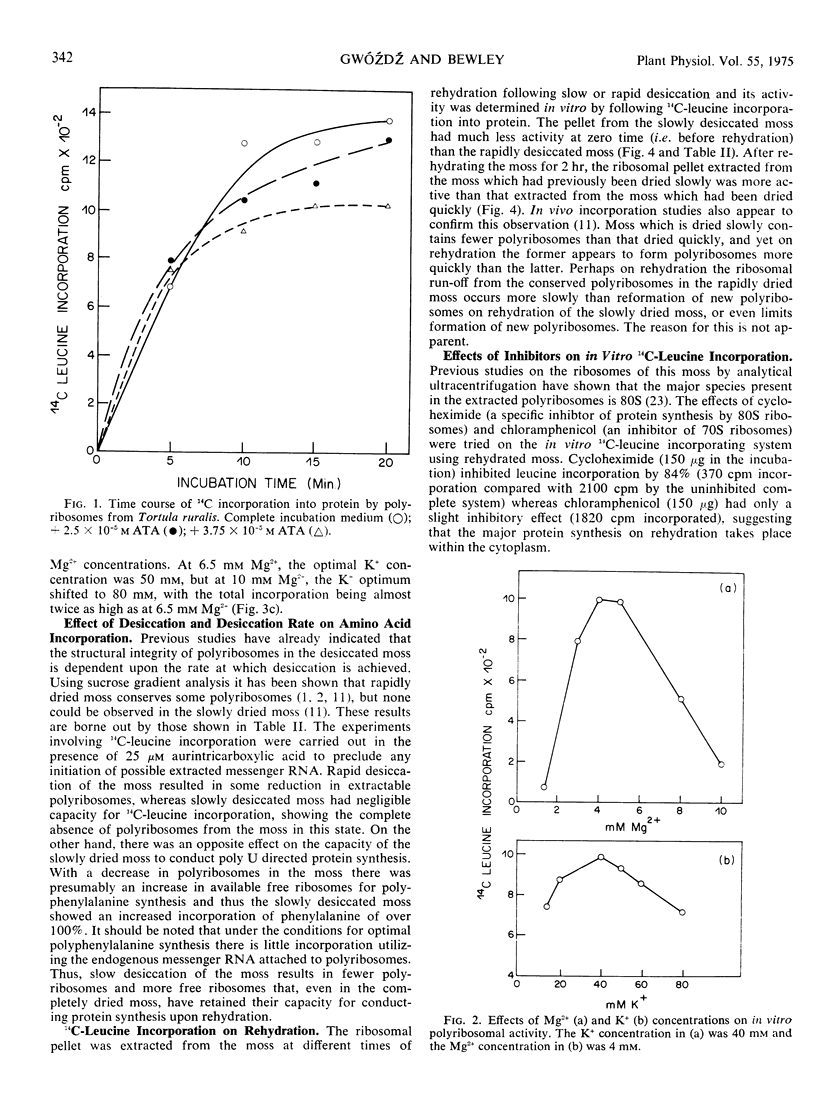
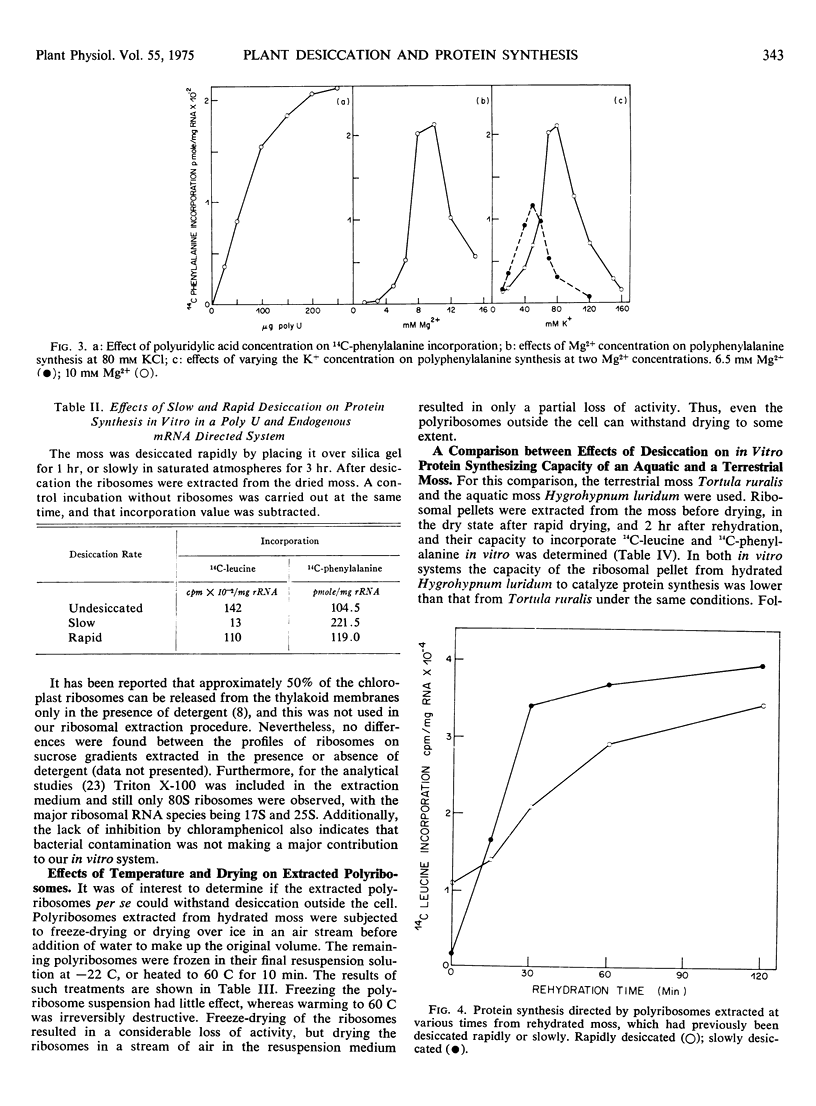
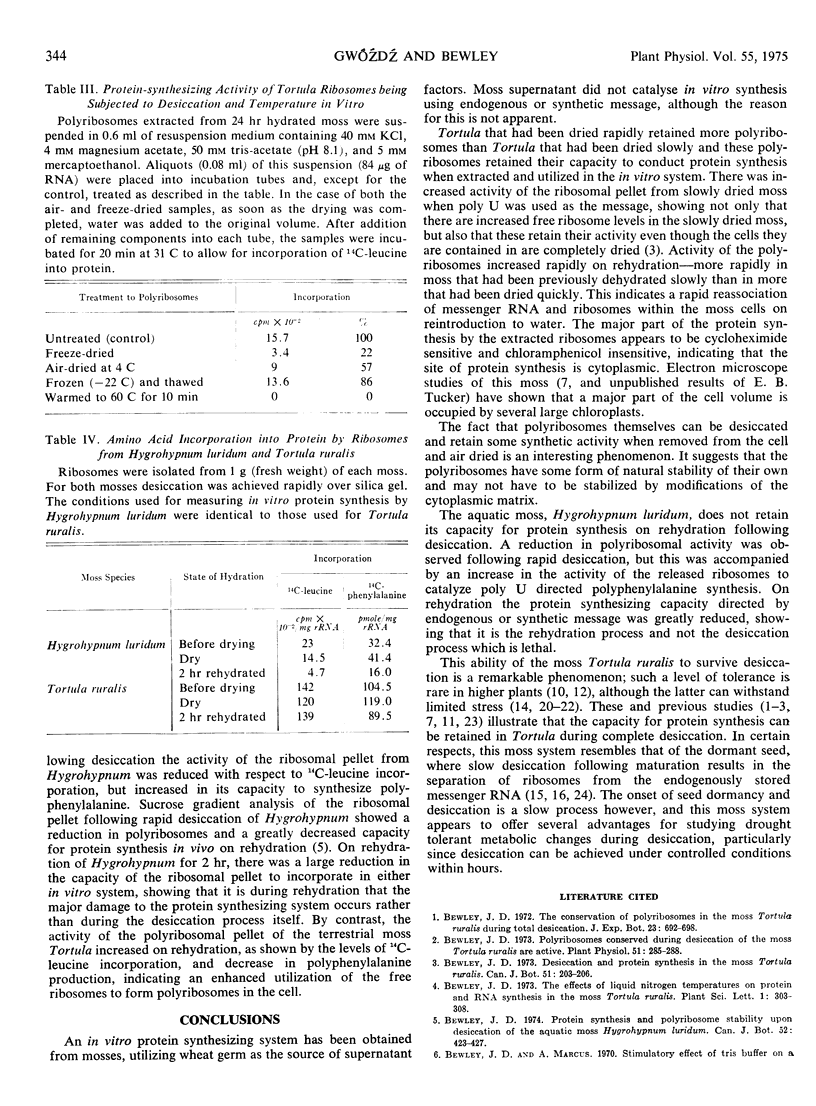
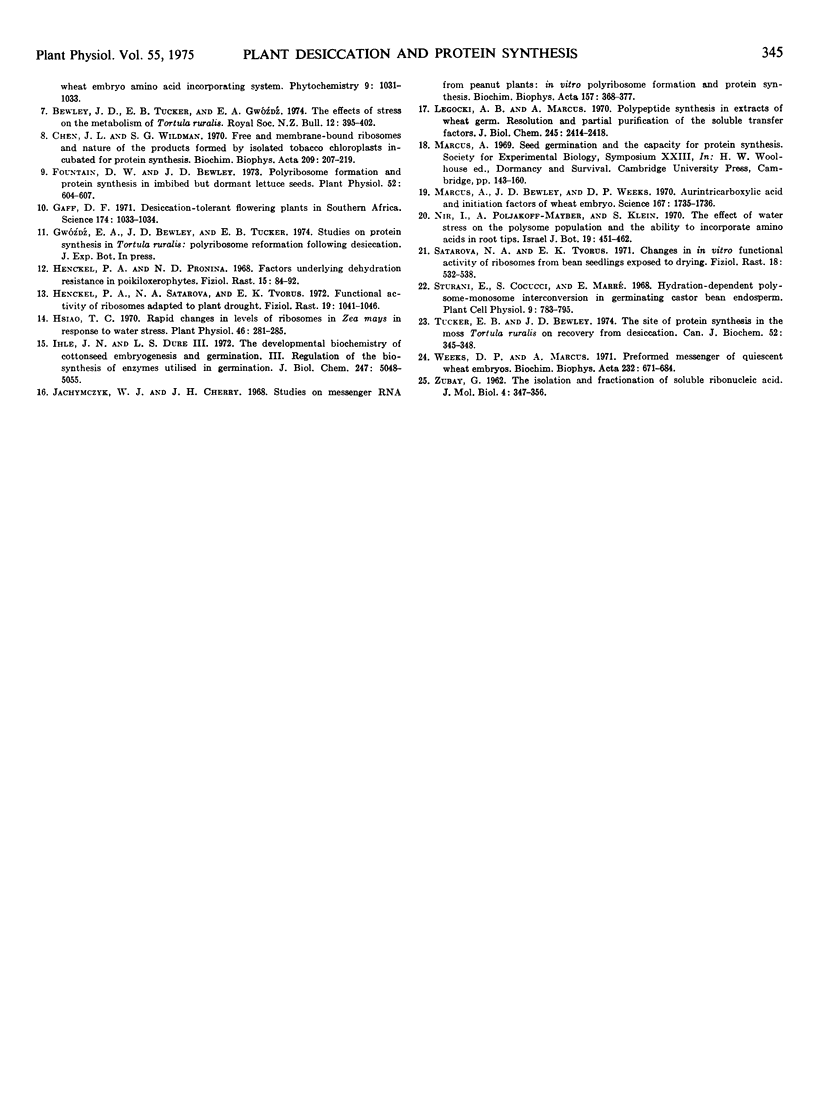
Selected References
These references are in PubMed. This may not be the complete list of references from this article.
- Bewley J. D. Polyribosomes Conserved during Desiccation of the Moss Tortula ruralis Are Active. Plant Physiol. 1973 Feb;51(2):285–288. doi: 10.1104/pp.51.2.285. [DOI] [PMC free article] [PubMed] [Google Scholar]
- Chen J. L., Wildman S. G. "Free" and membrane-bound ribosomes, and nature of products formed by isolated tobacco chloroplasts incubated for protein synthesis. Biochim Biophys Acta. 1970 May 21;209(1):207–219. doi: 10.1016/0005-2787(70)90677-5. [DOI] [PubMed] [Google Scholar]
- Fountain D. W., Bewley J. D. Polyribosome formation and protein synthesis in imbibed but dormant lettuce seeds. Plant Physiol. 1973 Dec;52(6):604–607. doi: 10.1104/pp.52.6.604. [DOI] [PMC free article] [PubMed] [Google Scholar]
- Gaff D. F. Desiccation-tolerant flowering plants in southern Africa. Science. 1971 Dec 3;174(4013):1033–1034. doi: 10.1126/science.174.4013.1033. [DOI] [PubMed] [Google Scholar]
- Hsiao T. C. Rapid Changes in Levels of Polyribosomes in Zea mays in Response to Water Stress. Plant Physiol. 1970 Aug;46(2):281–285. doi: 10.1104/pp.46.2.281. [DOI] [PMC free article] [PubMed] [Google Scholar]
- Ihle J. N., Dure L. S., 3rd The developmental biochemistry of cottonseed embryogenesis and germination. 3. Regulation of the biosynthesis of enzymes utilized in germination. J Biol Chem. 1972 Aug 25;247(16):5048–5055. [PubMed] [Google Scholar]
- Jachymczyk W. J., Cherry J. H. Studies on messenger RNA from peanut plants: in vitro polyribosome formation and protein synthesis. Biochim Biophys Acta. 1968 Apr 22;157(2):368–377. doi: 10.1016/0005-2787(68)90091-9. [DOI] [PubMed] [Google Scholar]
- Marcus A., Bewley J. D., Weeks D. P. Aurintricarboxylic acid and initiation factors of wheat embryo. Science. 1970 Mar 27;167(3926):1735–1736. doi: 10.1126/science.167.3926.1735. [DOI] [PubMed] [Google Scholar]
- Moses R. E., Singer M. F. Polynucleotide phosphorylase of Micrococcus luteus. Studies on the polymerization reaction catalyzed by primer-dependent and primer-independent enzymes. J Biol Chem. 1970 May 10;245(9):2414–2422. [PubMed] [Google Scholar]
- Tucker E. B., Bewley J. D. The site of protein synthesis in the moss Tortula ruralis on recovery from desiccation. Can J Biochem. 1974 Apr;52(4):345–348. doi: 10.1139/o74-052. [DOI] [PubMed] [Google Scholar]
- Weeks D. P., Marcus A. Preformed messenger of quiescent wheat embryos. Biochim Biophys Acta. 1971 Apr 8;232(4):671–684. doi: 10.1016/0005-2787(71)90759-3. [DOI] [PubMed] [Google Scholar]


